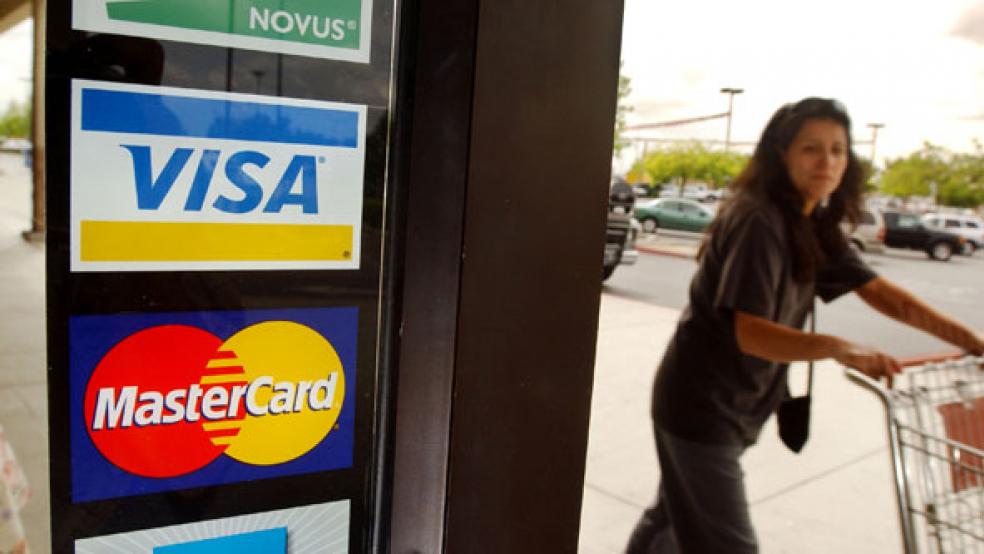Warren Buffett owns them. Should you?
“Them,” in this case, refers to the stocks of Visa (V) and MasterCard (MA), both of which reported double-digit profit increases in recent weeks as consumers appear to rediscover their love of deficit spending (at least on a personal level).
Indeed, despite all the anxiety about Europe’s debt crisis and the dire unemployment picture at home, Americans now appear just as willing as ever to say “Charge it!” at stores, or to swipe their Visa or MasterCard-branded debit cards. A much buzzed-about Gallup poll found that consumers plan to fork over $765 each, on average, for holiday gifts when the shopping season kicks off in earnest next week. That’s $50 a person more than they planned to spend last year. Not convinced? Well, consumers already seem to be spending more than economists expected: Retail sales were up 0.5 percent in October, according to a report issued Tuesday, compared with the consensus forecast of 0.2 percent.
Can it last? That’s the question that Buffett and other Visa and MasterCard investors must be asking themselves. Some pundits point out that consumers are once again dipping into savings to finance their current purchases; that’s something that won’t last long, especially if the economic news at home and abroad remains gloomy. To some extent, if you’re investing in Visa or MasterCard, you’re betting that, at the very least, customers will shift incidental purchases – a Starbucks coffee, popcorn at the movies – to their debit cards, even if they choose not to add to their credit card bills. As it gets simpler and faster for consumers and vendors to do that, both companies will benefit as the number of transactions they process continues to climb, even if net consumption remains little changed.
That means you’ll have to keep track of how both card companies manage their relationships with merchants and banks. Banks now face regulatory constraints on how much they can charge Safeway when a customer swipes her Visa card to pay for her groceries; that may mean banks start to lean on Visa to lower its own fees. Meanwhile, Visa has said it will have to spend more to keep merchants within its network and not lose volume share.
Anyone pondering a Visa investment will need to keep this in mind; on the surface, MasterCard – the brand-name card with the most to gain in the battle for market share – may be a better bet. It may not be priceless, but at a trailing price/earnings ratio of about 20 even after reporting a 38 percent surge in third-quarter profits, it looks pretty alluring.






